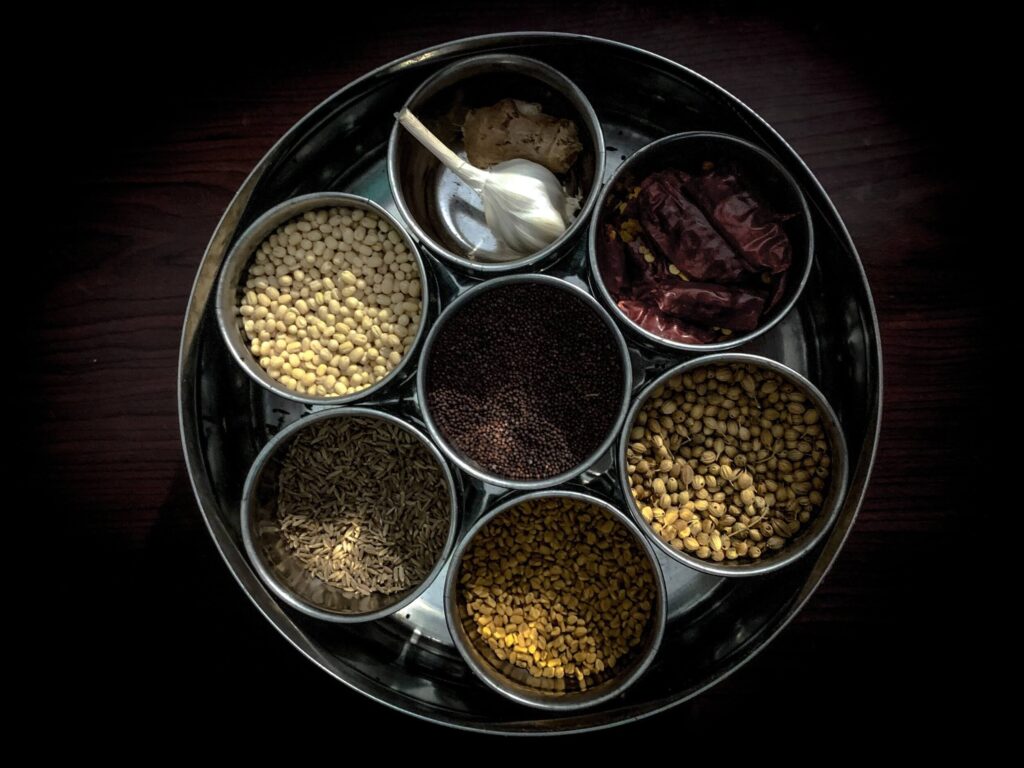Fenugreek is a bitter-tasting herb, native to the Mediterranean region and Southern Europe. It has been a pantry staple in Indian homes with its preparation and consumption varying across regions. It is increasingly garnering popularity as a go-to herb and has numerous health benefits that are being examined scientifically. Let’s have a look at some of them.

Highlights
- Compounds called alkaloids in fenugreek help block sensory receptors that are responsible for perceiving pain,
- Research suggests that some fenugreek compounds possess anti-diabetic properties and improve insulin sensitivity,
- Its anti-inflammatory effects are attributed to its high antioxidant flavonoid content.
Benefits of Fenugreek
1. Helps reduce blood sugar
Fenugreek seed preparations have been studied for their impact on lowering blood sugar levels, enabling blood glucose control in people with diabetes and in preventing progression from pre-diabetes to type 2 diabetes. Animal studies suggest that some fenugreek compounds possess anti-diabetic properties. They lessen intestinal glucose absorption, postpone gastric emptying, enhance insulin sensitivity and minimise absorption of lipid-binding protein.
A randomised trial revealed that daily intake of 10 grams of fenugreek powder in pill form slowed down the progression from prediabetes to type 2 diabetes over a three-year period.
2. Improves heart health
A meta-analysis done in 2020 determined that fenugreek supplementation pointedly decreased total cholesterol, as well as bad LDL cholesterol, while increasing levels of good HDL cholesterol, especially effective for those who already had diabetes and were looking to improve risk factors for heart disease. This becomes super important for people with diabetes since they’re twice as likely to develop heart disease. Fenugreek may improve heart health because fenugreek seeds hold dietary fibre that creates a viscous gel in the intestines and makes digesting sugars and fats difficult.
3. Aids in increasing testosterone levels
A 2020 study suggested that fenugreek extract may increase testosterone levels in men. An older study determined no such increase in testosterone but did show that a fenugreek supplement does have an overall positive impact on libido, including sexual arousal and orgasm and self-reported satisfaction with energy, well-being and muscle strength, among 60 men between the ages of 25 and 52 years old.
4. Can stimulate breast milk production
The studies so far have not been conclusive but fenugreek seed pills or tea are popular remedies for stimulating breast milk production since certain substances in fenugreek are said to have estrogen-like actions. A study showed that women who consumed fenugreek regularly for two weeks after childbirth experienced a significant increase in milk volume.
5. Has anti-inflammatory properties
Fenugreek has also demonstrated anti-inflammatory effects due to its high antioxidant flavonoid content.
6. Helps alleviate heartburn
A 2-week pilot study in participants who experienced frequent heartburn determined that fenugreek reduced these symptoms. Its effect matched that of antacid medications.
7. Provides pain relief and helps ease menstrual cramps
Fenugreek tea and seeds have traditionally been used for easing menstrual cramps. Research suggests that fenugreek seed powder in capsule form can cause a significant reduction in period pain along with a decrease in other PMS symptoms like headache, nausea, fatigue, lack of energy, fainting and vomiting without side effects.
Fenugreek is also used as medicine for pain relief. Sometimes, it’s wrapped in cloth, heated and applied directly to the skin to treat isolated pain and swelling (inflammation), pain and swelling of lymph nodes and addressing wounds, leg ulcers, eczema and gout. Compounds called alkaloids in fenugreek help block sensory receptors that are responsible for perceiving pain.
8. Aids weight loss
Fenugreek is also said to suppress appetite and increase feelings of satiety. This, in turn, helps reduce overeating/bingeing and helps with weight loss. Research suggests consumption of fennel tea leads to one feeling more full. This is due to its high fibre content.

How to use fenugreek
In cooking, fenugreek leaves and greens are used in dishes across the Middle East, South Asia and the Eastern Mediterranean. The dried leaves can be used as a herb. Raw fenugreek seeds, bitter in taste, are usually roasted so it can make them more palatable and their eventual flavour is nutty and mild. These seeds can be ground or used whole while flavouring dishes or while brewing tea. They’re also often included in spice blends. A fenugreek seed extract has been safely consumed in doses of 0.6-1.2 grams by mouth. Consult your healthcare provider to find out the dosage that would suit you. It can also be soaked overnight and taken in the morning for a healthy start to the day.
Side effects
Excess consumption of fenugreek can trigger some unpleasant side effects like gas, dizziness and diarrhoea. Large doses of fenugreek can lead to a drastic reduction in blood sugar levels, so taking it with diabetes medication can have harmful side effects.
Fenugreek is also said to reduce potassium which can adversely impact people that take medications, such as diuretics.
Fenugreek can also lead to allergies due to potential cross-reactivity with adjacent plant allergens. People who are allergic to chickpeas, coriander or peanuts should ideally avoid fenugreek supplements
Conclusion
Fenugreek is a kitchen staple that can also double up as a do-it-all herb. It can help to lower blood sugar and research suggests that fenugreek positively impacts cholesterol. Studies show that it increases testosterone and libido in men. Due to certain substances in fenugreek that have estrogen-like properties, it stimulates breast milk production. It has been traditionally used for pain relief, due to its anti-inflammatory properties and also helps with menstrual cramps and other PMS symptoms. Alleviating heartburn is also part of it impressive profile. There are multiple ways to use fenugreek: powder, in a spice blend and whole, soaked in water overnight. Fenugreek can have some side effects such as diarrhoea, gas and dizziness and a large dosage can be potentially dangerous for people on diuretics.
Disclaimer: The contents of this article are for general information and educational purposes only. It neither provides any medical advice nor intends to substitute professional medical opinion on the treatment, diagnosis, prevention or alleviation of any disease, disorder or disability. Always consult with your doctor or qualified healthcare professional about your health condition and/or concerns and before undertaking a new healthcare regimen including making any dietary or lifestyle changes.
References








